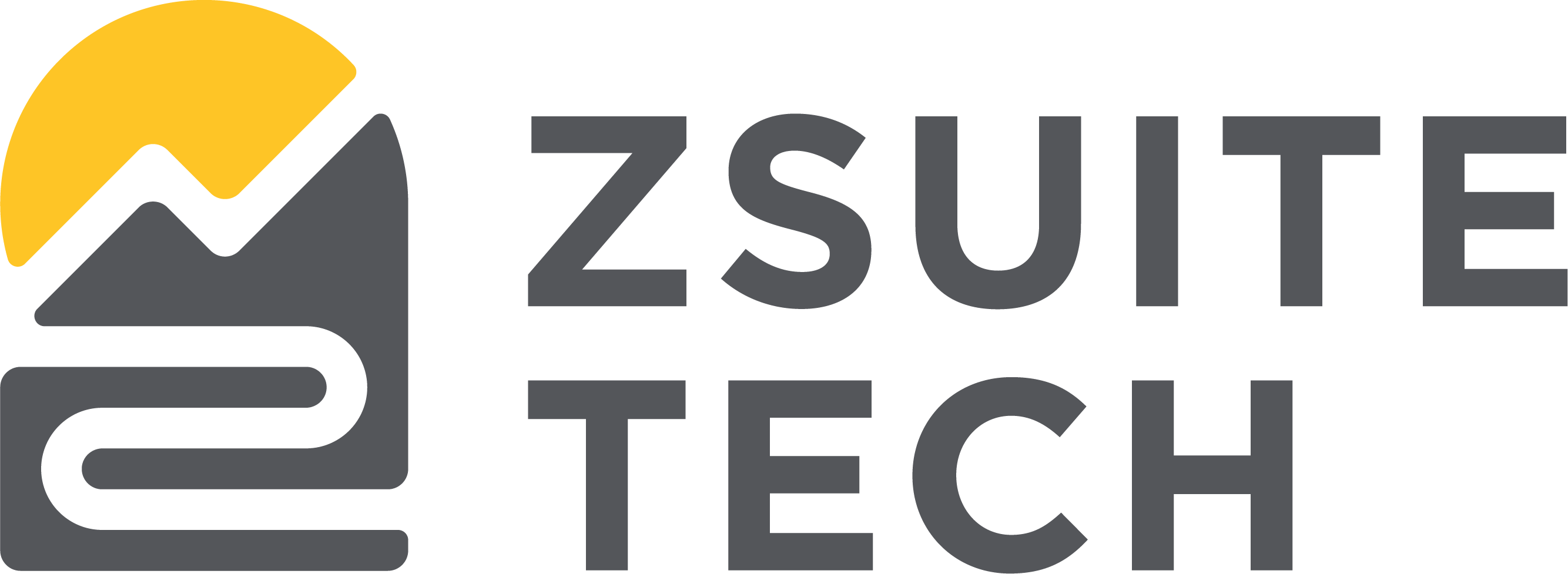Supercharge Your Investments with 1031 Exchanges
by ZSuite Tech on Sep 19, 2023 8:54:21 AM
What Is a 1031 Exchange?
A 1031 exchange, named after Section 1031 of the Internal Revenue Code, is a tax-deferred transaction that allows investors to sell one property and purchase another while deferring capital gains taxes. Simply put, a 1031 exchange means swapping one investment asset for another. It enables investors to exchange one investment property for another without recognizing any immediate taxable gain. This allows your investment to grow tax-deferred.
Who Can Use a 1031 Exchange?
While real estate investors are the most common users of 1031 exchanges, this strategy isn't exclusive to them. Any individual or business owning an appreciating asset can benefit. So, whether you're an art collector or a small business owner with commercial property, there's potential for you to make the most of a 1031 exchange.
To qualify for a 1031 exchange, both the property you're selling (relinquished property) and the property you're acquiring (replacement property) must be "like-kind." This means they must be of the same nature, character, or class, but not necessarily the same quality or grade. For example, you can exchange a residential rental property for a commercial office building.
The Benefits of 1031 Exchanges
- Tax Deferral: The most significant advantage of a 1031 exchange is the ability to defer capital gains taxes. By reinvesting the proceeds from the sale into another property, you can postpone paying taxes on your capital gains, potentially allowing your investments to grow more quickly.
- Greater Investment Capital: Since you're not paying taxes upfront, you have more money to invest in your next asset. This can potentially lead to higher returns.
- Wealth Accumulation: 1031 exchanges enable investors to continually reinvest in larger and potentially more profitable properties, thereby accelerating wealth accumulation.
- Portfolio Diversification: A 1031 exchange can also be a way to diversify your portfolio. You can exchange one high-value property for multiple smaller ones, or vice versa.
- Estate Planning: When done strategically, 1031 exchanges can be a valuable estate planning tool. By deferring taxes during your lifetime, your heirs may inherit the property with a stepped-up basis, potentially reducing their future tax liability.
Considerations Before Using a 1031 Exchange
As powerful as a 1031 exchange can be, it's not a decision to be made lightly. Here are a few things you need to consider:
- Time Constraints: You have 45 days to identify potential replacement properties after selling your initial property, and a total of 180 days to complete the purchase.
- Qualified Intermediary: You'll need a qualified intermediary to handle the funds during the exchange, as you're not allowed to access the money in between selling and buying.
- Like-kind Property: The replacement property must be of the same nature or character, even if it differs in grade or quality.
- Tax Consequences Upon Sale: Remember that the capital gains tax is only deferred, not eliminated. You will owe taxes when you eventually sell the replacement property unless you undertake another 1031 exchange.
- Consult a Tax Professional: Given the complexity of 1031 exchanges and changing tax laws, it's crucial to consult with a tax professional or attorney experienced in these transactions.
When used strategically and with careful planning, these exchanges can be a valuable component of an investment strategy. However, it's essential to understand the rules, follow the timelines, and seek expert advice to make the most of this tax-saving opportunity.
- Press (53)
- Commercial banking (16)
- Deposits (14)
- Partnerships (12)
- 1031 Exchanges (9)
- ZEscrow (9)
- Bank tech (8)
- Specialty Deposits (8)
- ZValues (6)
- Property Management (5)
- VAM (4)
- Law Firms (3)
- Liquidity Management (3)
- Municipalities (3)
- Working smart (3)
- Podcast (2)
- Webinar (2)
- Builder, Banker, Hacker, Chief (1)
- FDIC Insurance (1)
- February 2026 (1)
- December 2025 (1)
- November 2025 (1)
- September 2025 (1)
- August 2025 (4)
- July 2025 (1)
- June 2025 (2)
- May 2025 (1)
- March 2025 (1)
- February 2025 (1)
- January 2025 (1)
- December 2024 (1)
- November 2024 (1)
- October 2024 (3)
- September 2024 (2)
- August 2024 (3)
- July 2024 (2)
- June 2024 (3)
- May 2024 (6)
- April 2024 (2)
- March 2024 (5)
- February 2024 (1)
- January 2024 (2)
- December 2023 (1)
- November 2023 (3)
- October 2023 (1)
- September 2023 (1)
- August 2023 (3)
- June 2023 (3)
- May 2023 (1)
- March 2023 (6)
- February 2023 (4)
- January 2023 (4)
- December 2022 (2)
- November 2022 (6)
- October 2022 (1)
- September 2022 (1)
- August 2022 (3)
- June 2022 (1)
- May 2022 (1)
- April 2022 (5)
- March 2022 (3)
- December 2021 (2)
- September 2021 (3)
- July 2021 (2)
- June 2021 (1)
- May 2021 (1)
- April 2021 (4)
- March 2021 (3)
- February 2021 (4)
- January 2021 (2)




